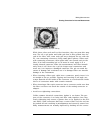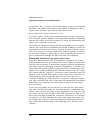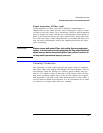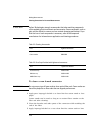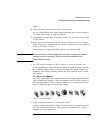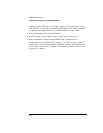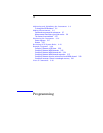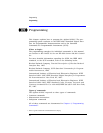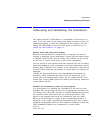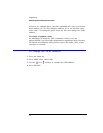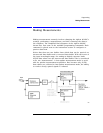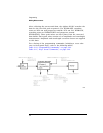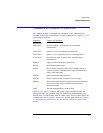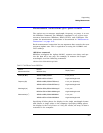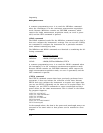
3-3
Programming
Addressing and Initializing the Instrument
Addressing and Initializing the Instrument
The Agilent 86120C’s GPIB address is configured at the factory to a
value of 20. You must set the output and input functions of your pro-
gramming language to send the commands to this address. You can
change the GPIB address from the front panel as described in “To
change the GPIB address” on page 3-4.
Remote mode and front- panel lockout
Whenever the instrument is controlled by a computer, the Remote
message is displayed on the instrument’s screen and the softkey menu
is blanked except for the LOCAL softkey. This softkey can be pressed
by the user to restore front panel control of the instrument.
You can specify a local lockout mode that prevents the LOCAL softkey
from being displayed. If the instrument is in local lockout mode, all the
softkeys may be blanked. For example, if the instrument is first placed
in local lockout mode and then placed in remote mode, no softkeys are
displayed.
Consult the documentation for your programming environment to
determine which commands are used to put an instrument in the
remote and local lockout modes. These are not Agilent 86120C com-
mands; they control GPIB control lines and do not send any characters
to the Agilent 86120C.
Initialize the instrument at start of every program
It is good practice to initialize the instrument at the start of every
program. This ensures that the bus and all appropriate interfaces are
in a known state. HP BASIC provides a CLEAR command which clears
the interface buffer and also resets the instrument’s parser. (The
parser is the program that reads the instructions that you send.)
Whenever the instrument is under remote programming control, it
should be in the single measurement acquisition mode. This is auto-
matically accomplished when the *RST common command is used. The
*RST command initializes the instrument to a preset state:
CLEAR 720
OUTPUT 720;”*RST”



